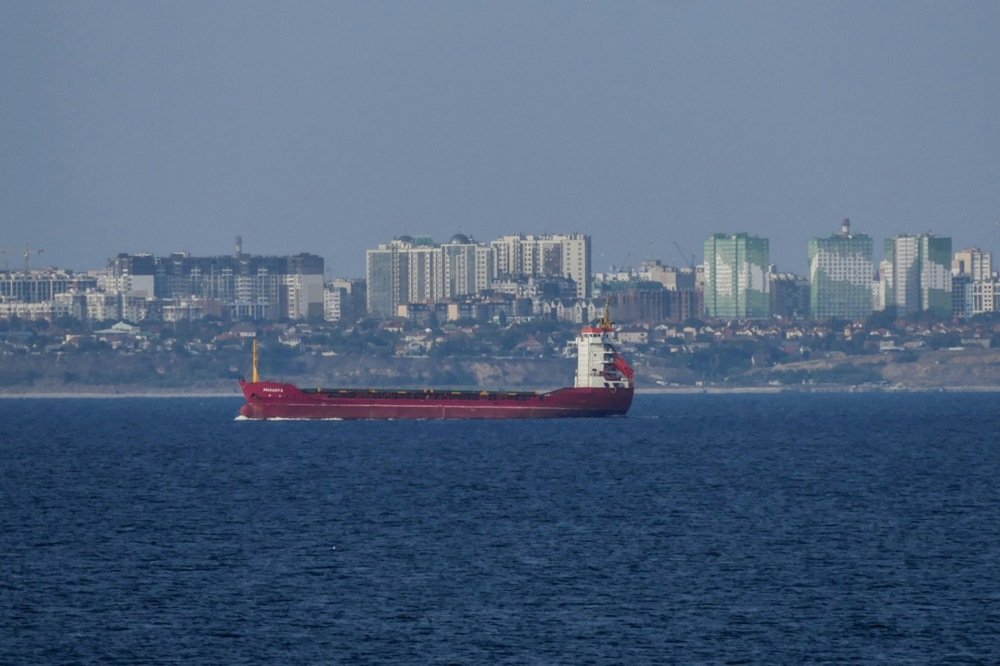
A bulk carrier enters the Ukrainian sea port of Odesa on 3 October 2023. Photo: EPA-EFE/IGOR TKACHENKO
Both Moscow and Kyiv have agreed to a US-brokered ceasefire in the Black Sea after indirect talks held in the Saudi Arabian capital Riyadh over the past three days, the White House announced on Tuesday.
Issuing two separate statements, Washington said that it had got both Moscow and Kyiv to commit to “ensure safe navigation, eliminate the use of force, and prevent the use of commercial vessels for military purposes in the Black Sea”.
Both the Ukrainian Defence Ministry and the Kremlin also issued statements confirming their support for the Black Sea ceasefire on Tuesday, though Ukraine stressed that if Russia moved its navy into “the Eastern Black Sea”, it would be considered “a threat to Ukraine’s national security”, and Kyiv would have “every right” to self-defence.
The Kremlin issued its own caveat, however, saying that the Black Sea deal would only come into force once a number of sanctions on Russia’s agricultural sector were lifted, including sanctions on Russian vessels transporting agricultural produce and fertiliser. Moscow also insisted that restrictions on SWIFT transactions must be lifted for Russian Agricultural Bank “and other financial organisations” involved in the food and fertiliser trade.
Both Russia and Ukraine agreed to “develop measures” for implementing a ceasefire on each other’s energy facilities, the White House wrote, something Ukraine confirmed in less uncertain terms, saying that “all parties” had agreed “on a complete ban” on energy infrastructure strikes.
Meanwhile, the Kremlin also agreed to the 30-day energy infrastructure ceasefire, which it said had started on 18 March, noting that each side could extend the agreement further or withdraw from it in case of non-compliance. Both Russia and Ukraine accused each other of violating the energy infrastructure ceasefire multiple times last week after it was initially agreed during US President Donald Trump’s calls with Vladimir Putin and Ukrainian President Volodymyr Zelensky.
The Kremlin presented the interim outcomes of the talks in Riyadh as an agreement between Washington and Moscow, only mentioning Ukraine once when describing the energy infrastructure ceasefire, while the Ukrainian Defence Ministry referred to the parties as “all sides”.
In a Ukraine-focused statement, the White House said that the US remained “committed” to facilitating prisoner of war exchanges, the release of civilian detainees and the return of Ukrainian children who were forcibly deported to Russia. The Ukrainian Defence Ministry also confirmed Kyiv’s agreement to all these points, noting that additional consultations would need to be held “as soon as possible” to agree on the technical aspects of the implementation, monitoring and control of the agreements.
The White House said that the US would continue facilitating negotiations between Moscow and Kyiv to achieve a peaceful resolution to what it euphemistically termed the “Russia–Ukraine conflict”, and reiterating that “the killing on both sides” needed to stop.
